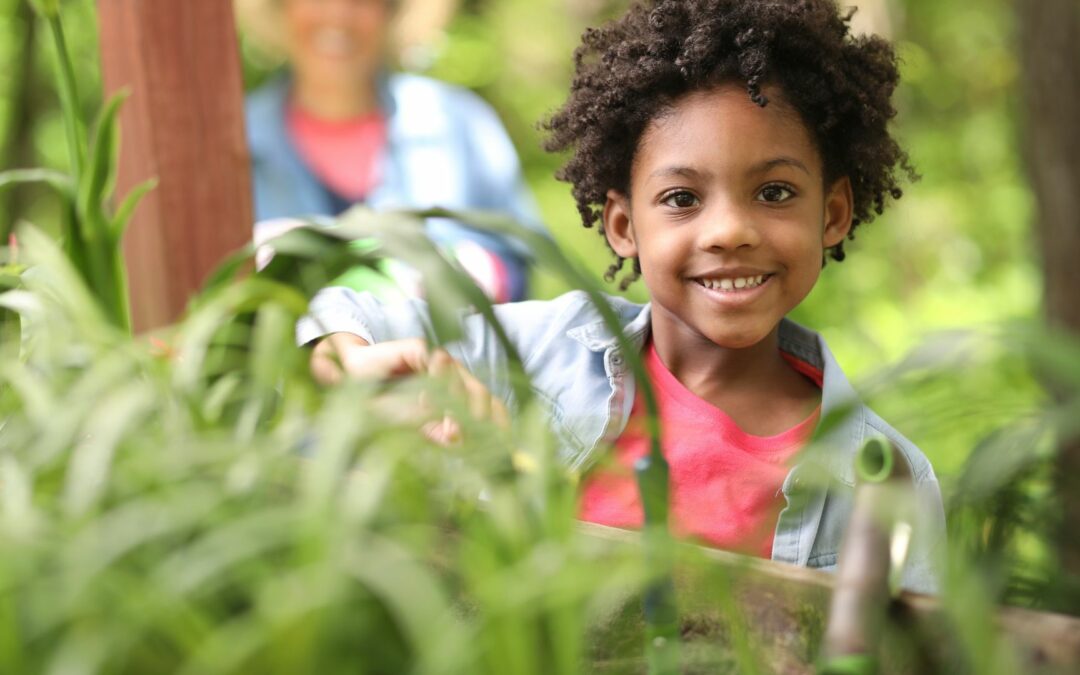Gardening can be a great hobby for nannies and children as it builds on a natural desire to be outdoors. You don’t need a lot of space, tools or money, just time and effort. Pre-planning is key to getting the children excited and keeping them engaged throughout the growing season. Select age-appropriate information and help the child plan their garden. In am apartment or condo – this may be an inside herb garden or a patio garden. If there is a yard available, it may be a more ‘traditional’ in ground plot
Consider the space available and research what grows well in your area.
Then create a list of assorted options to present to the child. The garden can focus on one type of plant – herbs, vegetables or flowers, or be a mixed garden. Choose a wide variety of things that don’t need a lot of maintenance. Let the child have a sense of ownership and have them select most if not all of the things to plant. Keep the process fun – children’s enthusiasm will fade quickly If they see the garden as a chore.
Let the child dig in the dirt to plant the seeds, water the garden and pull the weeds.
Keep a list of what is planted and how long it should take before they sprout and then bloom. This will keep the child from disappointment in the early stages if they don’t see as much progress as they expect. Some children may want to document the process with pictures.
It’s inevitable that bugs, birds, or animals will visit an outdoor garden.
Let the child know ahead of time that we are not the only creatures on earth that enjoy plants. Discuss ways to protect their plants – fencing, scarecrows, etc. They can create their own bird deterrents – scarecrows, wind powered spinners, reflective surfaces, etc.
When the plants bloom and fruit or vegetables ripen – show the child how to properly harvest their ‘crop’.
Incorporate their harvest into family meals so everyone gets to benefit from the garden. Children who are sometimes averse to trying new fruits and vegetables may be more willing if they come from their own garden.
In addition to the benefits of fresh air and fresh harvest, children reap other benefits from gardening. It provides a great opportunity for children to learn and equips them with critical skills which can help them in other areas of their lives. Planting seeds, scooping dirt and watering plants requires development of certain fine motor skills. Gardening also helps children improve their concentration and learning capabilities. Watching the plants sprout and grow helps a child develop patience. Waiting for a vegetable to be ready to pick, or for a flower to open up, makes the moment even more exciting.
Gardening can also introduce children to basic concepts of science and math. Math concepts include counting seeds, measuring soil depth and counting petals/leaves. Science concepts include the sprouting process and gaining an understanding of how plants require sunlight and water for growth. Be careful not to turn every encounter into a lesson or the child’s interest may diminish. Focus on the fun!
If a child’s interest is waning or they are impatient, you can add more fun to the garden. You can create a themed garden. Let the child create a fairy garden or a dragon’s lair. Small plastic toys and cardboard art projects can add another dimension to gardening for children.
If you are a nanny and want to earn a professional nanny certification, check out the Nanny Institute’s online programs.


Recent Comments